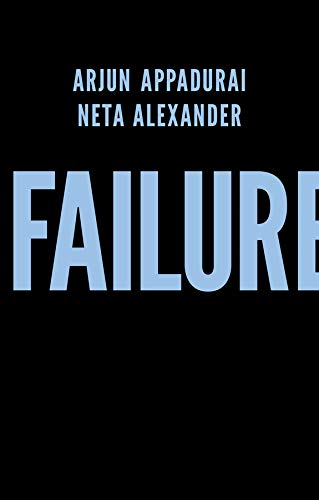For a work that focuses on digital latency and circling GIF-loading icons, the authors fail to notice and comment on the mythical and archetypal dimensions of the uroborus image that now serves as the ubiquitous dynamic rendering of "buffering."
I was also disappointed that "buffering" in "Failure" excluded and neglected the post-modern treatment of "deferral": ex., Derrida (différance), Lyotard (truth deferred), Deleuze (reality itself as deferred becoming), Foucault and Rorty. Although mentioned on practically every page, somehow the importance assigned to "buffering" by the authors eluded me.
Needless to say, I felt like I was caught in endless "buffering" while reading "Failure" -- with the book in one hand, and AI open on my screen in the other, trying to expand and flesh out promising references that never quite panned out. "Affective economy" is an undeveloped concept -- as is the "naturalization" of failure. Heidegger's critique of technology (ready-to-hand versus present-at-hand) is left hanging; and really awesome insights into how "sociality" (social structures) are devoured as techno-capitalism continues to expand are, sadly, barely touched on. What a shame! Where is Robert Putnam when we need him?
Some of the sentences just string words together -- and self-referential 'hooks' littered every other page, sometimes referring to either a past chapter or an upcoming discussion both on the same page. This was both annoying and distracting, I thought.
I greatly valued discussion that unpacked economist Joseph Schumpeter's notion of creative destruction, which he identified as the heartbeat of modern capitalism, because Appadurai and Alexander draw attention to the crucial role played by debt production in the cycle of innovation and business decline. Christensen's version is the idea of "disruptive innovation" -- once so wildly popular with entrepreneurs and venture capitalists -- that conveniently hides the downside of these "systems of debt production" now enslaving us all.
In this regard, a radical decentering of Weber's accumulative asceticism opens up to David Graeber's expanding universe of Debt. [Another missed opportunity, I thought, was not mentioning how Dasein's primordial "immer schon schultig" overlaps with viewing "debt as a natural fact" (110).]
But how this discussion leads to semiotic derivatives is something I did not understand.
"Convenience" -- digital convenience -- leads discussion in another direction about how all these developments distort the experience of time, compressing and accelerating it, and the role that technology plays in warping time (112), especially now in the Era of AI (which began the year this book was published, 2020).
Another failing, in my opinion, was the lack of an "Index" to help navigate this short book.
Unfortunately, "debt refusal" or opting-out (the only alternatives mentioned by the authors) are simply not plausible.

